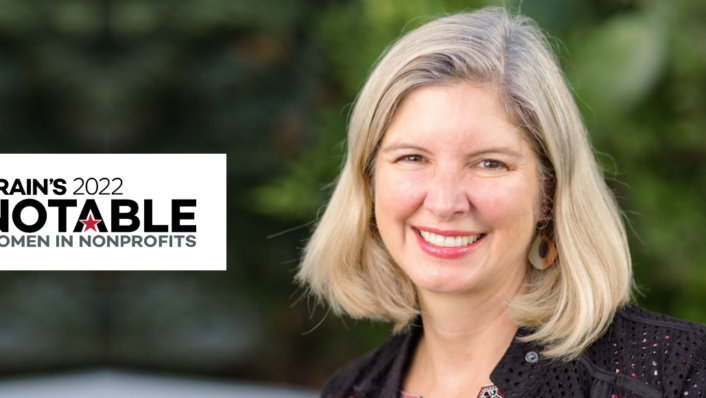GreenPath Financial Wellness Adds New Affiliate: Consumer Credit Counseling Service of Puerto Rico
GreenPath Financial Wellness expands debt management and housing services for residents in Puerto Rico and Central Florida alongside Consumer Credit Counseling Service of Puerto Rico.
Crain’s Detroit Notable Women in Nonprofits 2022 Honors Kristen Holt
- December 5, 2022
- Category: News, People Behind GreenPath
GreenPath’s own Kristen Holt is among the honored this year. She infuses human-centered design into GreenPath’s DNA, prioritizing both clients and employees.
GreenPath Financial Wellness Wins 2022 Top Workplaces Award
- November 20, 2022
- Category: News, People Behind GreenPath
GreenPath Financial Wellness is proud to be named a 2022 Top Workplaces award winner for Work-Life Flexibility, and for our diversity initiatives.
Julie Crichton Selected as Notable LGBTQ Leader in Business
- October 3, 2022
- Category: News, People Behind GreenPath
Julie Crichton, GreenPath’s Director of Talent and Employee Experience, has been selected as a 2022 Notable LGBTQ Leader in Business by Crain’s Detroit Business.
GreenPath Financial Wellness’ Empathy-Focused Financial Coaching Program Delivers Results
- July 20, 2022
- Category: News
The pilot for GreenPath Financial Wellness’ Your Money Guide, an online, email, and telephone financial coaching program that provides individuals with a path to financial resiliency.
GreenPath Financial Wellness Announces Board Transition
- March 23, 2022
- Category: News
FARMINGTON HILLS, Mich. (March 23, 2022) – GreenPath Financial Wellness, a national nonprofit that has provided financial counseling services since 1961, announced key changes to its board and that of its affiliate, Homeownership Preservation Foundation (HPF). GreenPath Vice Chair, Carey Pachla, will become Chair of...
GreenPath Receives $1 Million Grant from USAA to Help Military Families and Communities of Color Improve Financial Health
- January 6, 2022
- Category: News
GreenPath Financial Wellness was awarded a $1 million grant from USAA to help communities of color and low-income military families experiencing financial hardships.
Protect Yourself from Identity Theft this Holiday Season – WXYZ TV Detroit
- December 15, 2021
- Category: Financial Education, News
WXYZ TV Detroit shares tips to stay safe this holiday season when shopping online and in person. You can help protect your identity.
GreenPath Unveils Best Practices for Organizations to Address Inclusion, Diversity, Equity, and Access
- December 14, 2021
- Category: News
GreenPath’s white paper provides insights to help organizations advance their inclusion, diversity, equity, and access (IDEA) initiatives.
Showing results 1-9 out of 248









